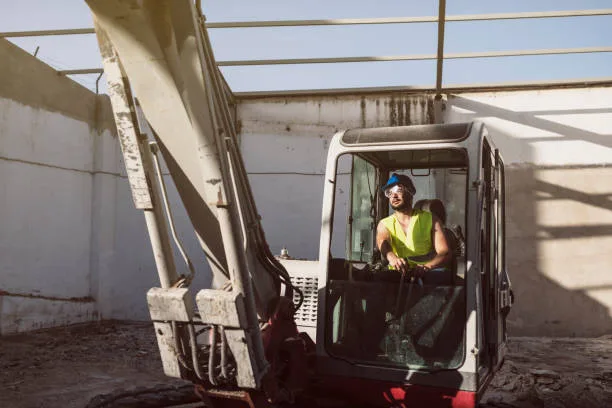
Every year, numerous workplace accidents occur due to inadequate safety measures, particularly when it comes to operating heavy equipment. Backing up heavy equipment without a spotter is serious hazard that is very likely to cause serious bodily injury or death through striking or backing-over pedestrians. OSHA regulations make clear that several dangers arise from backing up without a spotter. Herein, a few of these dangers are outlined:
First, among the primary dangers associated with backing heavy equipment without a spotter is that the operator suffers reduced visibility. Rearview mirrors and cameras may help, but they are not beyond error—OSHA makes clear that large blind spots exist around heavy equipment, making it difficult for operators to see pedestrian workers in the vicinity of the moving equipment. By utilizing a spotter, operators can mitigate visibility challenges and better protect pedestrians around the equipment and thereby reduce the risk of injury.
Another danger relates to the unpredictable nature of worksites. Often, they are dynamic environments with works of various trades constantly working on various tasks. When operating heavy equipment, the operator has a duty to be aware of those around them. In cases without a spotter, an operator should avoid backing up in a busy worksite, as the operator may not be aware of the presence and/or actions of workers, which greatly increases the likelihood of collisions and injuries.
Last, communication suffers when an operator lacks a spotter. In safe construction practice, clear and concise communication is paramount; particularly when there is the backing of heavy equipment—more so if the worksite is congested and busy. When a spotter is absent, operators may encounter difficulties in gauging distances and avoiding obstacles. OSHA underscores that spotter signals, such as hand gestures and communication through radios ensure proper coordination between the spotter and the equipment operator. This coordination can prevent accidents, as spotters act as an additional set of eyes and provide real-time information to operators.
These are but a few of the extreme hazards and dangers that are created when an operator backs heavy equipment without a spotter. This list is by no means exhaustive. Thus, it is for good reason that OSHA requires them in many circumstances, but especially in the construction industry.
If you have been injured or someone you know has been injured or killed in a workplace accident that you believe is by the fault of the negligence of another, please contact an attorney at Abraham, Watkins, Nichols, Agosto, Aziz & Stogner by calling 713-222-7211 or 1-800-870-9584 for a free legal consultation.
